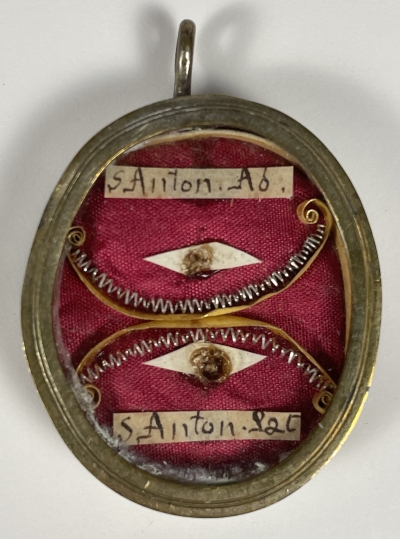Saint Anthony the Great (†356), was a Christian monk from Egypt, revered since his death as a saint. He is distinguished from other saints named Anthony such as Anthony of Padua, by various epithets: Saint Anthony, Anthony of Egypt, Anthony the Abbot, Anthony of the Desert, Anthony the Anchorite, Anthony the Hermit, and Anthony of Thebes. For his importance among the Desert Fathers and to all later Christian monasticism, he is also known as the Father of All Monks. The biography of Anthony's life by Athanasius of Alexandria helped to spread the concept of Christian monasticism, particularly in Western Europe via its Latin translations. Anthony was among the first known to go into the wilderness (about AD 270), which contributed to his renown. Accounts of Anthony enduring supernatural temptation during his sojourn in the Eastern Desert of Egypt inspired the depiction of his temptations in visual art and literature. Anthony is appealed to against infectious diseases, particularly skin diseases. In the past, many such afflictions, including ergotism, erysipelas, and shingles, were referred to as Saint Anthony's fire. His feast day is celebrated on 17 January among the Orthodox and Catholic churches and on Tobi 22 in the Coptic calendar.
Saint Anthony of Padua († 1231), also known as Anthony of Lisbon, was a Portuguese Catholic priest and friar of the Franciscan Order. Noted by his contemporaries for his powerful preaching, expert knowledge of scripture, and undying love and devotion to the poor and the sick, he was one of the most-quickly canonized saints in church history. He was canonized in 1232 by Pope Gregory IX and was proclaimed a Doctor of the Church in 1946. He is the patron saint of Lisbon, lost items, lost people, lost souls, American Indians; amputees; animals; Brazil; elderly people; faith in the Blessed Sacrament; fishermen; harvests; horses; lower animals; mail; mariners; oppressed people; poor people; Portugal; pregnant women; shipwrecks; starvation; sterility; swineherds; travel hostesses; and travelers. His feast day is celebrated on June 13.








 Поменять язык на русский
Поменять язык на русский 